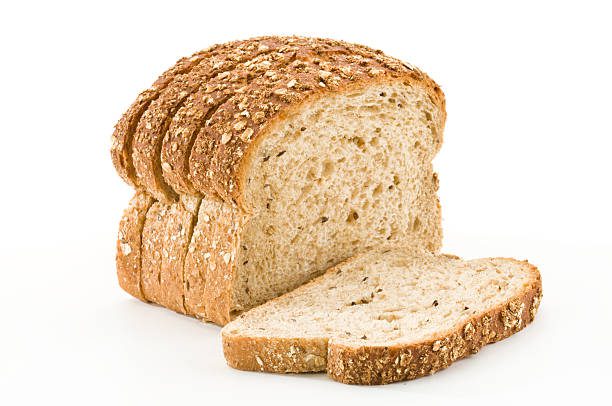⚠️ Medical Disclaimer
Important: This content is for informational and educational purposes only. It should not be used as a substitute for professional medical advice, diagnosis, or treatment. Always consult with a qualified healthcare provider before making changes to your diet, taking supplements, or if you have questions about a medical condition. Never disregard professional medical advice or delay seeking it because of information you read here.
Last Updated on September 17, 2024 by Pen Pixel
Bread has been everybody’s go-to food for ages. It’s easy to carry, nutritious, and tastes great. But not all bread is made the same way. And there are SO many different types of bread:
- Whole-grain,
- Sweetened,
- Cornbread,
- Flatbread,
- Sourdough,
- Sprouted grain,
- Soda bread, and more.
Some are healthier than others, but is bread really that good for you?
The problem is the gluten. Gluten is WILD! And yes, bread is loaded with it! It’s almost laced with it.
The Key Takeaways.
- Bread might be your go-to, but it’s packed with gluten, which can cause bloating, tiredness, and headaches.
- Plus, wheat has other nasties like glyphosate residue, WGA, FODMAPs, and ATIs that mess with your gut and brain.
- Modern bread-making skips the long fermentation that breaks down gluten, making it harder to digest.
- So, ditch the bread, feel amazing, and find non-wheat recipes online. Trust me, your body will thank you!
So, What About Gluten?


Gluten is the protein that makes bread chewy and helps it rise. The gluten content in bread flour is usually from 12% to 14% which is pretty high when compared to other types of flour. This high gluten content is what makes bread dough stretchy and gives it that satisfying chew.
Have you even noticed that you feel bloated, tired, gassy, and just plain blah after eating bread? It’s the gluten in it and it can cause all sorts of issues from:
- Messing with your digestion.
- Making you feel sluggish, and
- Causing headaches.
So, if bread leaves you feeling less than great, gluten might be the bad guy.
Here’s What To Do.
Cut out bread and anything with wheat flour. And guess what? Within days, you’ll feel amazing. You’ll have more energy and no more post-carb naps. Bread is poison for people. Especially people with diabetes.
Now I know you’ll miss eating them bread but trust me, finding non-wheat bread recipes online is a breeze.
I have tried it and felt good and if anyone says I’m missing out on nutrients by avoiding wheat bread, I just laugh and look away.
But Is It Just Gluten?
If you’re asking, “But is it just gluten?” Congrats, you’re a curious one!
Nope, it’s not just gluten. I did some digging and found out gluten is not the only bad guy. Sure, gluten often steals the spotlight, but there are 4 other specific things in wheat that can make you sick.
Glyphosate Residue.
Many wheat farmers use glyphosate, a herbicide, to dry out wheat before harvest. This can leave traces on the wheat, causing you health issues. Glyphosate can mess up your gut. It kills good gut bacteria, leading to digestive issues and even mental health issues. It’s not just about the residue on your food; it’s about how it shakes up your body’s balance.
Wheat Germ Agglutinin (WGA).
This is a type of lectin found in wheat. Lectins are proteins that can stick to cell membranes and cause digestive issues and inflammation. But WGA is more than just a gut irritant. It can cross the blood-brain barrier and bind to neurons, eventually messing with brain function. This means it can play a role in neurological conditions and could be why some people experience brain fog or cognitive issues after eating wheat.
FODMAPs.
Wheat has these tricky carbs called FODMAPs (Fermentable Oligo-, Di-, Mono-saccharides And Polyols). They can be hard to digest and cause bloating, gas, and other gut issues, especially for people with IBS (irritable bowel syndrome). These carbs don’t just cause bloating and gas; they can also pull water into your intestines, leading to diarrhea and severe discomfort. For people with IBS, FODMAPs can be a nightmare, triggering crazy symptoms that mess with their daily life.
Amylase-Trypsin Inhibitors (ATIs).
These proteins can spark immune responses and inflammation, and cause issues like asthma and other allergic reactions. But ATIs aren’t just about gut problems; they can also trigger inflammation in the central nervous system. This means they can make issues like multiple sclerosis (MS) and other autoimmune diseases worse. Recent research even shows that ATIs can activate immune cells in the gut, which then travel to the brain and causes inflammation.
So, yes, gluten is a big deal, but don’t leave these other 4 bad guys out of it. Altogether, they create a difficult combination that can affect everything from your gut to your brain.
More.
Even tiny amounts of gluten can cause big problems. Gluten is hard to digest for some people because its peptides resist stomach acids, leading to different digestive issues and discomfort.
An interesting twist is that modern bread-making is making things worse. Traditional methods, like those used for sourdough bread needs a long fermentation time which breaks down gluten, making it easier to digest. But most modern bread is made quickly, skipping this process and leaving the gluten intact and harder to digest.
That’s why some people find they can handle traditional sourdough better than regular bread.

